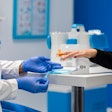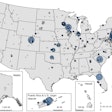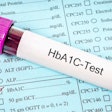Dear LabPulse Member,
The novel coronavirus hasn't been around that long, yet it has made such a dramatic impact on our personal and professional lives and our visions for the future. According to a July 9 update from the World Health Organization (WHO), more than 11.8 coronavirus cases have been reported globally, with more than 544,000 deaths, and the pandemic is still accelerating.
There's still a lot more to learn. The WHO is creating an independent panel to analyze experiences and responses internationally and has weighed in on current thinking about how COVID-19 is spread. Airborne transmission in crowded indoor locations such as restaurants cannot be ruled out, and more studies are urgently needed to investigate this risk, the WHO advised.
Meanwhile, a team led by researchers at University College London has been exploring the neurological aspects of COVID-19, which has typically been thought of as a respiratory disease in the short yet devastating time that it's been around. In a study published in the journal Brain, they reported on the neurological manifestations of COVID-19, based on clinical, laboratory, neuropathological, and radiological findings.
Children don't appear to be transmitting the disease much or suffering from it when they do get it. During a press briefing on July 8, the White House Coronavirus Task Force emphasized the importance of returning U.S. children to schools by this fall. Few would doubt the damage from the loss of in-person learning, but the coronavirus is far from tamed and remains a threat. Antigen testing is an option being considered for school districts.
On July 6, the U.S. Food and Drug Administration (FDA) granted an emergency use authorization to Becton Dickinson's Veritor Plus SARS-CoV-2 point-of-care test, which the company says delivers results in 15 minutes. This is the second antigen detection test cleared for emergency use by the FDA, after Quidel's Sofia 2 SARS antigen point-of-care test in May.
Outside of COVID-19, recent clinical news included the development of new biomarkers in disease areas with unmet need. Researchers reported in the Journal of Clinical Endocrinology and Metabolism on results from a study of two blood-based markers, FK506-binding protein like (FKBPL) and cluster of differentiation 44 (CD44), that have potential for use in predicting the risk of preeclampsia. A separate study highlighted promise for repeatedly measuring the fibrosis-4 (FIB-4) index in blood as a means of predicting the risk of developing severe liver disease. A noninvasive tool for fibrosis would have advantages over the gold standard of liver biopsy in a large at-risk patient population.



















